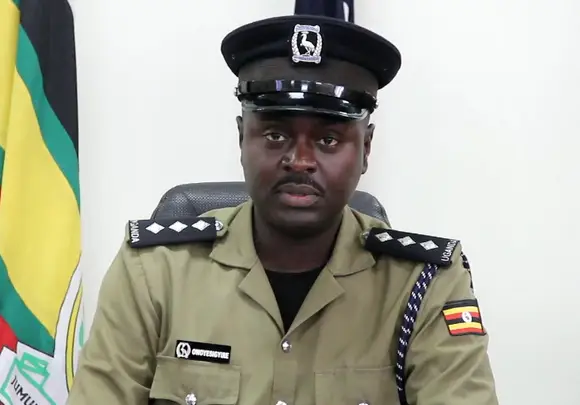
The Uganda Police have urged water well drillers to always be cautious and use expertise whenever they are drilling wells.
The remarks were made by the Kampala Metropolitan Deputy Police Spokesperson, ASP Luke Owoyesigyire, as he addressed the media at the Police Headquarters in Naguru, Kampala, on May 13, 2024, following the deaths of three laborers who suffocated while drilling a 130ft-well in Wakiso district on Friday, May 10, 2024, at around 5 p.m.
Owoyesigyire noted that the incident happened on the farm belonging to Jimmy Katalaga, a resident of Nsavu village in Namayumba subcounty, Wakiso district, where the laborers encountered a hurdle, which they tried to burn while drilling the water well and caused suffocation.
“One of the laborers, identified as Farouk Katongole, tried to burn the obstacle, and in the process, he suffocated. When the other two, Mugarasi Johnwhite and Emma, tried to rescue him, they also suffocated and died,” Owoyesigyire noted.
Owoyisigyire said that the police in charge of Fire Prevention and Rescue Services pulled the three bodies out of the well, and a case of rush and neglect was filed at Kakiri Police Station.
The Kampala Metropolitan deputy spokesperson urged the public to be sensitized about such jobs since one will run out of oxygen once they light or burn something 130ft down.
According to Owoyesigyire, more details will be available when the police finalize the ongoing investigations.
A 2020 report by Toolbox Energy indicates that people die from asphyxiation when drilling a well or borehole. According to the report, drilling wells, surveys, or piezometer jobs require comprehensive risk assessments. Experts advised that before starting the job of drilling, the work should have a valid work permit, and safety measures should be in place as required by the permit or prevention plan.
In the report, experts advised considering hazards such as: movement of persons and traffic; falls of persons and objects; electric shock or electrocution; toxication resulting from polluted soil, hydrocarbon vapors, hydrogen sulfide, and carbon monoxide; fire or explosion from buried networks—hydrocarbon or gas pipes, hydrocarbon vapors if they leak or pollute; management of soil and water extracted, among others is crucial.
By Catherine Atugonza














